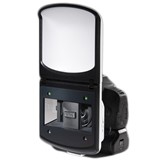This approach is particularly important for people with younger onset dementia, who in the past have been shuffled between the disability and aged care systems," Samuel was addressing the Senate Standing Committee on Community Affairs on the adequacy of existing residential care arrangements available for young people with severe physical, mental or intellectual disabilities in Australia.
"Their calls for help were answered with the implementation of the government-funded Younger Onset Dementia Key Worker Program (YODKWP), which has so far provided thousands of Australians with younger onset dementia with health professionals to assist them in navigating this complex service environment and linking them to appropriate services and supports," Samuel said.
"Unfortunately, it now seems like the government is planning to dissolve this important program into the mainstream services of NDIS. This is an alarming development for Australians who have received a diagnosis of younger onset dementia as it means they will be left to fend for themselves in the NDIS system where there is no guarantee their needs can or will be met."
Early placement into residential care has been clearly identified by Alzheimer's Australia as a major concern for people with younger onset dementia, their families and carers.
"Residential aged care services are usually an inappropriate environment for supporting a person with younger onset dementia who is often more physically fit and has different interests and social needs than an older cohort," Samuel said.
"Inappropriate care and lack of social engagement in these settings can lead to poor quality of life and influence the development of behavioural and psychological symptoms of dementia due to unmet needs.
"I cannot stress enough the importance of appropriate community supports for people with younger onset dementia. The unfortunate reality is without programs such as the YODKWP, people with younger onset dementia and their families will face a constant struggle to access age appropriate supports."
It is estimated that there are now more than 25,000 Australians living with younger onset dementia. Without a medical breakthrough, this figure is set to increase to 36,800 by 2050.








-160x160-state_article-rel-cat.png)







